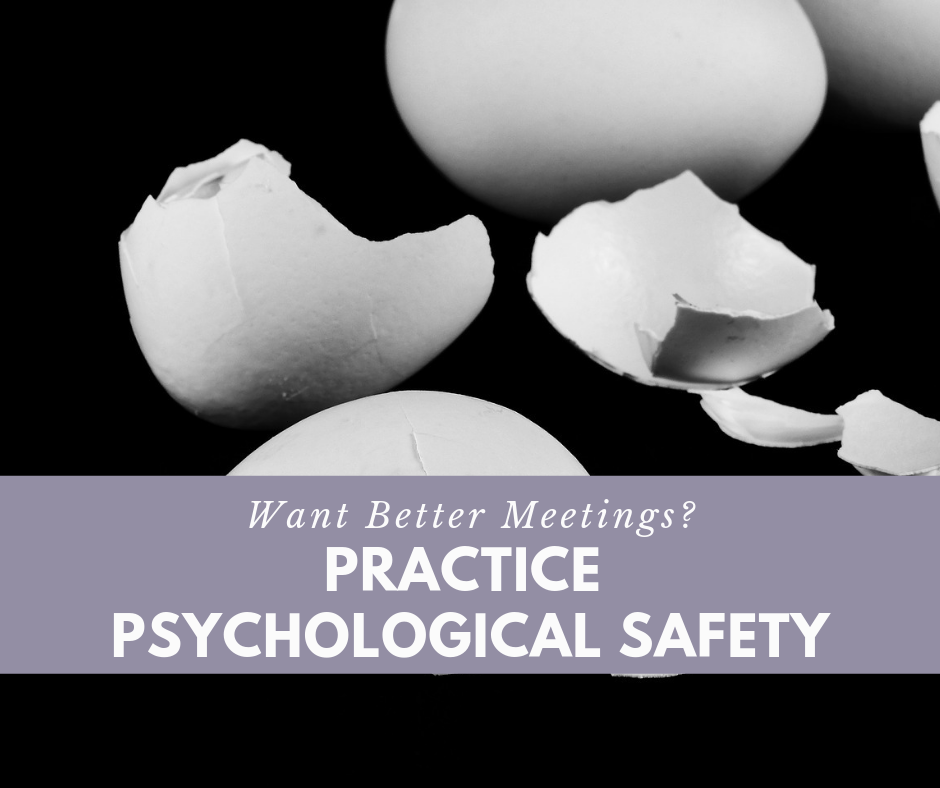|
Have you ever stepped into a meeting and experienced that “walking on eggshells” feeling? Like you’ve missed the joke, and no one is going to share it with you? Have you been in a meeting where you were afraid to tell the truth, bring up the hard facts, or provide constructive feedback? The fact is, good meetings are a symptom of great teams. Amy Edmondson was a part of Google’s Project Aristotle, where the tech company investigated what makes a team productive, innovative, or effective. In essence, what makes a team great? Through her research, she coined the term “psychological safety.” Psychological safety is a belief that you won’t be punished or humiliated for speaking up with ideas, questions, concerns, or mistakes. It describes a healthy way people relate to each other as a team.
You can’t have better meetings (collaborations, decisions) without psychological safety. It’s good for the mental health of your team and decreases employee turnover. If that’s not enough for you, consider improved employee engagement. Teams with psychological safety share accountability; they hold themselves and others accountable, which makes working together both demanding and inviting. There is a shared believe that each person on the team is capable and has the skills and knowledge to do their work that contributes to the whole. On teams with psychological safety, there is an attitude of “we are better together.” Employees feel fulfilled because the team respects and needs their perspective, input, and ideas. There is satisfaction in the work when each person contributes meaningfully in the way they were hired, called, or volunteered to do. Psychological safety means team members can show up to a meeting as their authentic selves, share ideas, take risks, and ask for help in front of the group. Curiosity replaces blame. Imagine being asked “what needs to happen?” instead of being asked “how could you?” Meetings are where we solve problems, make decisions, share ideas. To do our best work, we need to be able to say what we are thinking. We can’t avoid or skirt around problems. So, how can we encourage and build psychological safety?
Once your team starts to express psychological safety, you’ll see relationships grow, ideas expand, productivity increase. When we bring out true selves to work and to our meetings – everyone benefits. – Rachel
0 Comments
Your comment will be posted after it is approved.
Leave a Reply. |
Reach PartnersYour partners in leadership. Categories
All
Archives
July 2024
|
|
|
Reach Partners, Inc
3330 Fiechtner Dr. Suite 100 Fargo, ND 58103-2321 701-271-8170 Copyright (C) 2024 Reach Partners Inc.
|

